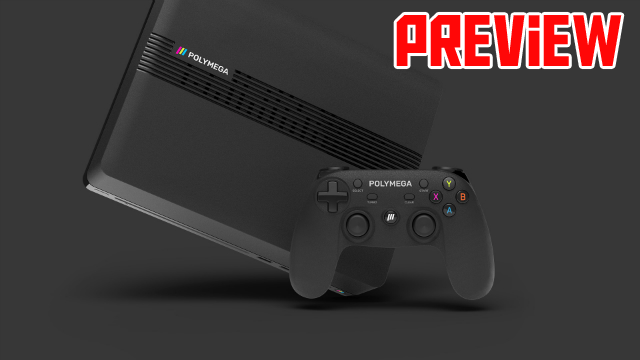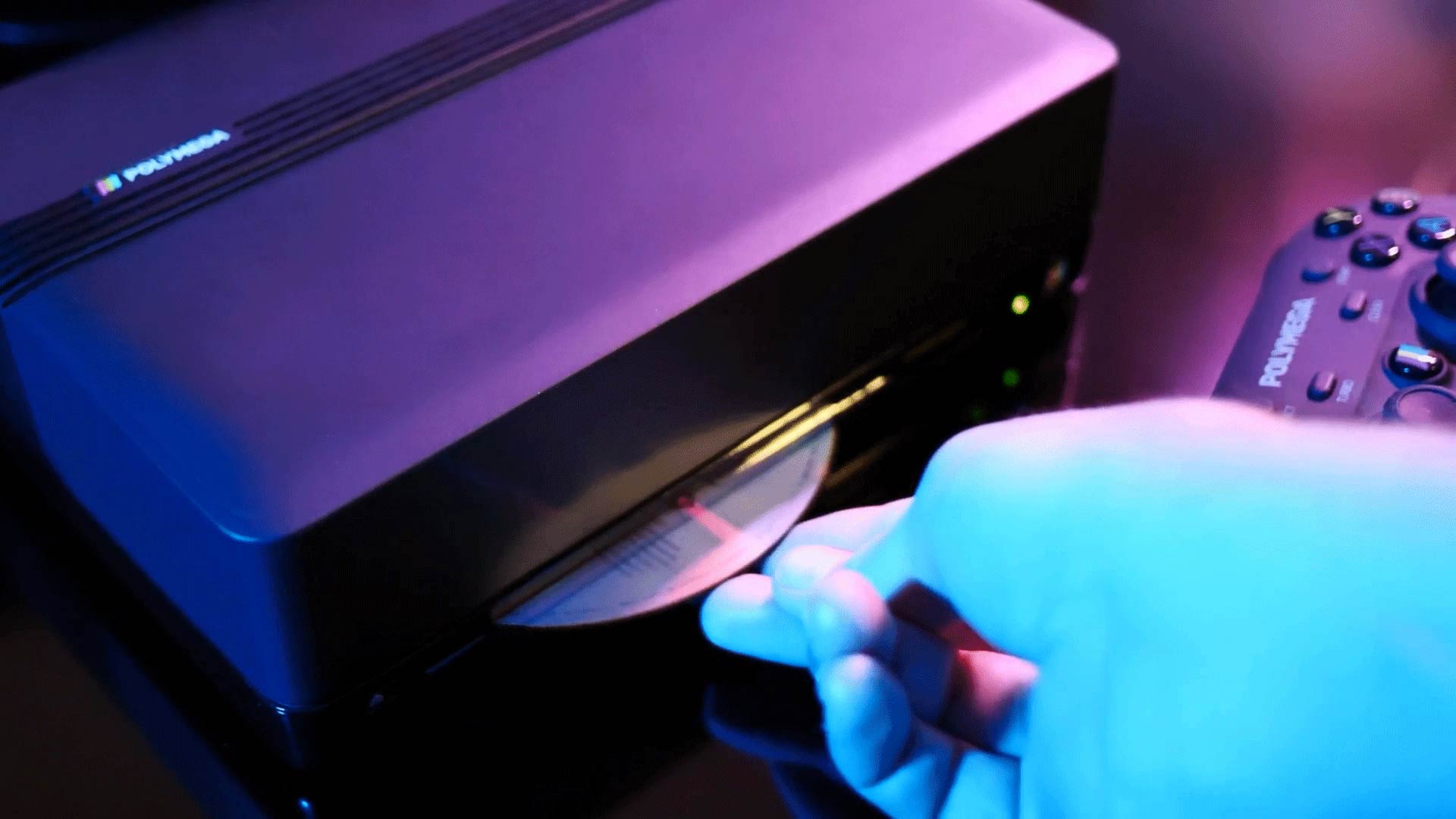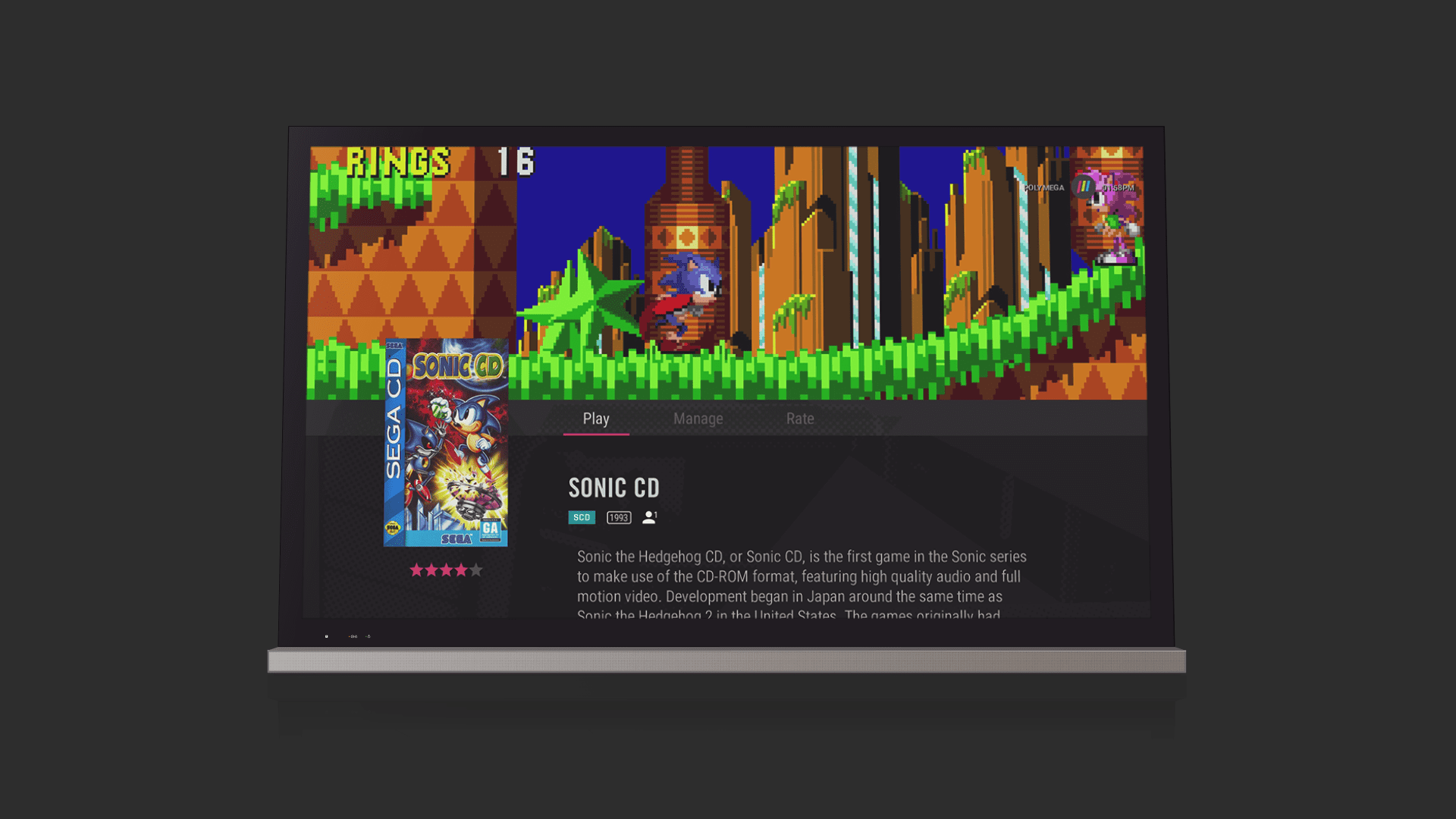I’m a huge retro enthusiast. Don’t get me wrong, I love modern games, but there’s something about the systems of the 1990s that is enthralling to me. While I’m lucky enough to own almost every console from the era, (though the Fujitsu FM Towns Marty and Commodore Amiga CD32 have eluded me so far) it was a long, expensive road, and with limited space in my entertainment center, sometimes I just don’t feel like grabbing my PC Engine Duo-RX just to play a quick game of Gate of Thunder. Fortunately, the Polymega is about to make retro gaming a lot simpler.
Clone consoles have been a thing for decades, but only recently have we started to see them go from being cheap knockoffs to devices that actually go beyond the hardware they’re emulating. However, what we haven’t seen is a device that goes beyond cartridges. For those of us who want to play CD-based titles, there’s only original hardware or PC based emulation. Both of which come with their own drawbacks.
The Polymega goes beyond other emulation-centric devices we’ve seen in the past and offers support for five CD-based systems (region-free of course) out of the box. This sounds impressive on paper, but I wondered if there were any caveats. Luckily, at E3 2019 I got to sit down and tour the Polymega’s capabilities with Bryan Bernal, CEO, and co-founder of Playmaji, the producer of the console.
Powering the Polymega is an Intel Coffee Lake processor and the console features custom CD-ROM firmware that helps it handle the archaic and proprietary formats that some systems use. The console doesn’t use an FPGA since it would be an absolutely herculean task to configure one to run the 30 consoles (including regional variations) that it supports. Instead, Playmaji has licensed various emulators to run the games. The difference here is that because every Polymega has the same hardware specs, Playmaji is able to work with those who wrote the emulators to optimize them for the console.
You can do more with the Polymega than just playing the games as they were on their original consoles. There’s a whole backend that brings a ton of options that can enhance the experience. For starters, you can backup your discs to the Polymega and launch them without the disk. Being able to archive your software this way allows a legal means to play your game whenever you want and preserve your media safely in its case. The launcher is extremely attractive as well, and the Polymega will automatically pull box art and data for your games so you can have a beautiful frontend for your collection. You can also add an m.2 SSD to increase storage space, which I highly prefer over a solution like micro SD.
You’ll also get added versatility in the form of add-on modules. On launch, there will be four modules that add the capability to play cartridges to the Polymega. NES, SNES, Turbografx-16/PC Engine, and Genesis/32X capabilities can be added, and you get a controller with each module based on that of the original console. I was able to handle each controller, as well as the wireless controller that comes standard with the base Polymega unit, and they all felt extremely solid. They’re a far cry from the terrible controllers that have plagued clone consoles in the past, and they each include a button to access the Polymega’s main menu. If you prefer to use original controllers that’s an option as well. Each module has controllers ports that are compatible with the original hardware, and through the use of a shortcut, you can still access the Polymega’s menu.
I only had a short amount of time with the system, unfortunately, so I stuck with two titles that I knew well. Super Mario World for SNES was pixel perfect as far as I could tell. I also got to see the various filters available on the console in action. You can do no filter, which gives a razor-sharp clear image, scanlines, or a cool honeycomb-looking “composite” filter. I’m not usually one for filters, but the composite filter really took me back to my childhood when I first played SMW on SNES hooked up through a VCR. There are also save states, with multiple slots for each game, which is a huge relief. I’m a pretty busy guy, so having the ability to save whenever I want makes tackling some of the less forgiving classic titles more tenable.
I also wanted to see just how the Polymega would handle a notoriously annoying console: the Neo Geo CD. The original model of the Neo Geo CD only has a 1x CD drive and 7 MB of RAM which means the damn thing is continually loading and it does it at a snail’s pace. Don’t get me wrong, I love my Neo Geo CD, a little loading beats paying $500 or so for an AES version of a game, but it can be a colossal pain waiting and waiting to play a game.
To my elation, I started Metal Slug, and I thought that damn loading monkey was going to knock himself out he was flailing his arms so fast. Loading isn’t instantaneous, but it’s much, much quicker than on original hardware. The emulation is also spot on. There’s even slow down in the right parts.
Speaking with Bernal, I could tell he’s really passionate about the preservation of classic games. As a collector of retro hardware, I can identify with that mission. While some consoles, mostly the cartridge-based ones, are built like tanks, many early CD systems are prone to a multitude of failures. We’re approaching the point where consoles like the Sega CD/CDX/X’eye/Wondermega and Turbografx CD/PC Engine CD/PC Engine Super CD/Duo/Duo-R/Duo-RX are hitting 25-30 years old, and the garbage quality capacitors in them are bursting and ruining their motherboards. Time is taking many of these systems off the market, and because they’re getting rarer, it’s starting to get cost-prohibitive to purchase them. I mean, why give $300-400 for a PC Engine Duo-R/RX when most of the games didn’t even come out in the US?
At $300 the Polymega gives you the ability to play games across five console families for around what you would pay for a Sega CD, PC Engine/Turbografx CD, or Neo Geo CD in good shape with one controller and maybe a game if you find an especially good deal. Now, I won’t ever discourage someone from buying real hardware, but there’s also the added cost of purchasing an upscaler if you want to play on an LCD TV. Collecting retro consoles gets expensive fast, and the Polymega is perfect for both people who want to keep their old systems pristine and those who want to get into classic gaming without paying the $500-600 starting fee.
Additionally, at $60 apiece, the modules are a steal. You just can’t find a Turbografx-16/PC Engine, NES, SNES, or Genesis with a 32X for that price anymore on the regular. The base unit and expansion modules each come with digital games as well, and that sweetens the deal further. Also, in Q4 2019, Polymega will be opening a marketplace so you can look forward to modern games on the console as well.
It’s needless to say I’m pumped for the Polymega. Analogue’s systems are cool, but their price point is a bit high for what you get. My time with the Polymega showed a quality, expandable system that offers a ton of features for an extremely affordable price, and I can’t wait to play it again when it releases in the coming months.











